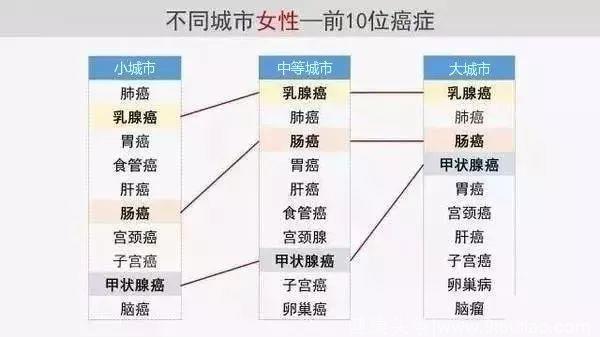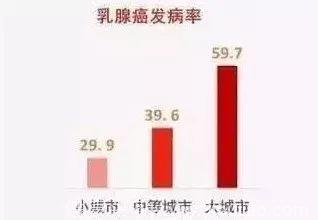终于等到你!中国晚期乳腺癌维持治疗专家共识发布
晚期乳腺癌维持治疗告别抓瞎状态,首部专家共识给你导航!
整理丨Chemo
来源丨医学界肿瘤频道
1
中国女性健康第一杀手,怎么破?
乳腺癌是女性最常见的恶性肿瘤之一。我国女性乳腺癌发病率逐年升髙,每年新发患者约27万例。
2017年国家癌症中心最新数据显示,乳腺癌已为我国女性肿瘤发病第一位。尤其在大城市中,乳腺癌发病率已高达59.7%。


图 不同城市女性癌症发病率
在所有乳腺癌患者中,3%~8%的患者初诊时即为转移性乳腺癌。
即便是接受了手术及规范治疗的早期患者,仍有30%~40%会复发转移。
中国医学科学院肿瘤医院肿瘤内科主任徐兵河教授指出:
目前晚期乳腺癌5年生存率约20%,对于晚期乳腺癌患者,内分泌治疗、化疗及靶向治疗是主要治疗方法。
2011 年国际乳腺大会已将晚期乳腺癌定义为“慢性病”,因此需对晚期乳腺癌患者进行长期治疗和管理,并通过研发创新药物、优化治疗策略等方法帮助患者对抗病魔,续写生命篇章。
维持治疗的理念,最早在白血病治疗中被提出,而后在非小细胞肺癌和肠癌等实体肿瘤治疗中陆续得到认可。
- 一项基于11项随机对照研究的荟萃分析显示,延长一线化疗时间,能提高晚期乳腺癌患者的无进展生存期(PFS)和总生存期(OS)。
- 且有研究表明,持续治疗直到疾病进展能提高晚期乳腺癌患者的生活质量。
自此,乳腺癌也开启了维持治疗模式的探索。关于晩期乳腺癌维持治疔的硏究缺乏系统性,亟需结合研究数据与临床经验,达成共识。
不过,中国的临床专家还是很给力的!近日,中国抗癌协会乳腺癌专业委员会就隆重发布了《中国晚期乳腺癌维持治疗专家共识》,为我国晚期乳腺癌进行规范的维持治疗提供了更有力的数据支持和专家指导。
这不仅是我国,也是全球范围内,首部晚期乳腺癌维持治疗的专家共识。厉害厉害,起立鼓掌!

今天,界哥就带大家来学习下这部新鲜出炉的专家共识!
2
横空出世,维持治疗是个啥?
首先,本共识所指的维持治疗,是针对接受规范的一线化疗(通常6~8个周期)后达到疾病控制(包括完全缓解,部分缓解和疾病稳定)的晩期乳腺癌患者,通过延长药物治疗时间,控制肿瘤进展,从而达到缓解症状,改善生活质量,提高PFS的目的。
维持治疗的模式大致可分为三类:
原方案维持:将一线化疗方案延长至疾病进展或不可耐受。
原方案中部分药物维持:一线化疗后,从原有效方案中选择单个或部分药物来进行维持。
换药维持:经过一线化疗后,换用其他适合维持的化疗药物或内分泌药物进行维持。
维持治疗的时间:
关于维持治疗的时间,建议持续到疾病进展或不良反应难以耐受。在维持治疗过程中,应定期评估患者的临床获益、长期治疗的不良反应、生活质量经济水平、家庭照顾及心理状况,适时调整方案。
3
天下武功,唯“5”不破!
前人栽树,我来乘凉,晚期乳腺癌治疗五套大法轻松收入囊中。好像走在路上捡到一本武林秘笈,那一刻,我感到主角的光环闪闪发光,我就是被命运选中的一代武林高手啊,哈哈!

喂喂,醒醒,老师划重点啦!
呃,又在做梦(⊙o⊙)…
1
联合化疗方案
既往研究
KCSG-BRO702研究显示,一线接受吉西他滨联合紫杉醇化疗6个周期后,达到疾病控制的患者继续接受该方案维持化疗,能显著改善患者的PFS(7.5与3.8个月,P=0.026)和OS(32.3与23.5个月,P=0.047)。
年龄≤50岁、获得完全缓解(CR)或部分缓解(PR)发生内脏转移、转移部位≥2个,以及激素受体(HR)阴性的患者,更能从联合方案维持治疗中获益。
一项Ⅱ期随机对照研究,比较一线使用口服卡培他滨联合长春瑞滨,与吉西他滨联合紫杉醇和吉西他滨联合多西他赛的治疗效果。
结果显示:3组的疾病控制率(73%、78%、80%)相似,含紫杉类方案的中位无进展生存似乎更长(7.6、9.0、11.4个月),但3组中位OS相似(30.2、29.6、31.0个月)。卡培他滨联合长春瑞滨组的2级脱发,乏力发生率均低于含紫杉方案组。
专家建议:
部分从一线联合化疗方案中获益且耐受性好的患者,可考虑将联合方案持续用到疾病进展。治疗中可根据患者耐受情况,适时更改维持方式及用药时长。
可选的联合药物有紫杉类、吉西他滨、卡培他滨、长春瑞滨等。
2
单药方案
既往研究
联合方案维持治疗的不良反应,常导致减量甚至停药,在降低疗效的同时也影响了患者的生活质量。因此,使用有效的单一药物进行维持治疗似乎更为切实可行。
目前,使用紫杉和蒽环类单药进行维持治疗的证据不充分。
卡培他滨作为一种新型口服氟尿嘧啶类药物,单药在晚期乳腺癌显示出疗效,使用方便且不良反应发生率低,使其成为乳腺癌维持治疗的常用药物项。
一项Ⅲ期随机对照研究显示,经过卡培他滨联合多西他赛一线化疗后,达到疾病控制的患者继续口服卡培他滨进行维持治疗,中位PFS达到8.4个月,中位OS达到35.3个月。
同样,在卡培他滨联合方案后使用卡培他滨单药维持治疗的疗效和安全性在中国的几个研究中也得到证实。
专家建议:
维持治疗需要兼顾疗效、安全性与经济因素。因此,在一线化疗有效的前提下,选用其中一种适合长期使用、方便、安全又经济的药物进行维持治疗是目前推荐的方案之一。可选卡培他滨等。
3
节拍维持
既往研究
节拍化疗是一种低剂量、高频率的新型化疗方式,可能通过抗肿瘤血管生成、免疫调节等作用发挥抗肿瘤效应。同时具有不良反应发生率低,治疗耐受性好等特点。
- 一项Ⅱ期单臂研究发现,晚期乳腺癌一线口服低剂量环磷酰胺联合甲氨蝶呤节拍化疗,能达到21个月的PFS。
- 后有研究表明,使用卡培他滨单药节拍化疗,疗效与传统化疗方案相似,且耐受性明显提高。
- 而长春瑞滨单药节拍化疗也在老年患者中显示出良好的疗效与耐受性。
- 近年有研究表明,卡培他滨联合长春瑞滨双口服节拍化疗能达到5.6~10.5个月的无进展生存,但均缺乏长期生存获益的数据。
节拍化疗,对药物也提出了较高要求:
- 首先,药物有效,卡培他滨作为一种抗代谢药物,有很好的持续作用,对于晚期乳腺癌很有疗效,也适合高频次、低剂量的维持治疗模式;
- 没有过多远期毒性,如蒽环类有远期心脏毒性,不适于用作维持治疗,紫杉类药物长期使用有末梢神经毒性也不适于长期维持治疗,而卡培他滨长期毒性相对较小;
- 给药途径便捷,患者不可能每天输液,口服给药的方式适于做维持。
专家建议:
(1) 对于难以耐受常规剂量化疗维持的患者,可考虑节拍化疗。
(2) 适合节拍化疗的药物应为高效、低毒且使用方便的口服制剂,推荐的有卡培他滨、长春瑞滨、环磷酰胺或甲氨蝶呤。
4
靶向药物维持
HER2阳性晚期乳腺癌
对于HER2阳性晚期乳腺癌,既往研究均显示,曲妥珠单抗联合化疗后,予曲妥珠单抗治疗至疾病进展,能显著提高患者的PFS与OS,且维持阶段的不良反应发生率低。
- CLEOPATRA研究表明,帕妥珠单抗联合曲妥珠单抗,在联合化疗结束后,继续使用至疾病进展,能显著提高患者的PFS与OS,且并未增加心脏毒性。
- 对于HER2+,HR+的患者,一项基于805例患者的回顾性分析显示,HR状态并不影响患者从曲妥珠单抗治疗中的获益。
- 2016年公布的 PERTAIN研究显示,使用帕妥珠单抗联合曲妥珠单抗和芳香化酶抑制剂(AI)进行维持治疗,比曲妥珠单抗联合AI维持的PFS更长(8.89与15.80个月, P=0.007)。
- 2017年公布的ALTERNATIVE研究结果显示,拉帕替尼联合曲妥珠单抗和AI组的PFS比曲妥珠单抗联合AI组更长(11与5.7个月, P=0.0064)。然而上述两项研究均缺乏OS数据。
HER2阴性晚期乳腺癌
一项基于E2100、AVADO和 RIBBON-1研究的荟萃分析显示,贝伐珠单抗联合化疗之后,给予贝伐珠单抗进行维持治疗,可提高临床获益率,延长PFS,但OS改善不明显。
一项Ⅲ期 IMELDA研究表明,接受贝伐珠单抗联合多西他赛一线化疗后,与使用贝伐珠单抗单药维持治疗相比,给予贝伐珠单抗联合卡培他滨维持治疗能显著提高患者的PFS和OS。
专家建议:
(1) HFR2阳性晩期乳腺癌,如抗HER2治疗有效,建议持续使用至疾病进展。
(2) 对于使用帕妥珠单抗联合曲妥珠单抗治疗并获益的患者,建议继续使用双靶药物维持治疗。但考虑到患者耐受情况和经济因素,可考虑使用曲妥珠单抗维持。
(3) 对于接受抗HER2治疗后达到完全缓解数年的患者,考虑到患者经济因素,可暂时中断治疗。
(4) 对于HER2阳性且激素受体阳性的患者,经过一线化疗联合抗HER2治疗后,不推荐单用内分泌疗维持,建议以抗HER2治疗维持,同时也可加用内分泌治疗进行维持。
(5) HER2阴性乳腺癌,目前缺乏特异性治疗的药物。贝伐珠单抗在中国无乳腺癌病种适应证,且缺乏长期生存获益的数据,鼓励贝伐珠单抗联合化疗在维持治疗中的临床研究探索。
5
内分泌治疗维持
既往研究
对于ER+/HER2-的晚期乳腺癌患者,接受了一线化疗达到疾病控制之后,应给予化疗还是内分泌维持治疗,缺乏头对头的大型临床研究证实。
一项系统性综述显示,与不做维持治疗相比,使用内分泌维持治疗能改善症状,延长PFS,且提高患者生活质量。
2017年美国临床肿瘤协会(ASCO)报道的一项前瞻性的多中心Ⅱ期单臂研究显示,一线化疗获益后采用氟维司群的维持治疗中位无进展生存达16.1个月。
专家建议:
对于HER2-,HR+的晚期乳腺癌患者,一线接受化疗获益后,使用内分泌维持治疗是种合理的选择。
如果一线接受化疗获益且对化疗耐受尚可,也可以继续使用化疗维持。
内分泌维持药物的选择,应参照一线内分泌治疗药物的选择策略。
好啦,界哥尽力了,这五套大法拿去好好学,将来学成了,别人找上你,不要把我供出来就行。

界哥嘚啵嘚
吾生也有涯,而知也无涯~所以有一个巨人的肩膀站一站真棒,就像别人都在皱眉啃内外妇儿,而我已搞到历年考点和真题……
参考文献
[1] Chen W, Zheng R, Baade PD, et al. Cancer statistics in China 2015[J]. CA Cancer Clin,2016,66(2):115-132.DOI 10.3322/caac.21338[2] Siegel RL, Miller KD, Jemal A. Cancer statistics, 2016[J].CA Cancer J Clin,2016,66(1):7-30.DOI:10.3322/caac.21332.[3] gonzalez-angulo AM, morales-vasquez F, Hortobagyi GN Overview of resistance to systemic therapy in patients with breast cancer[ J]. Ady Exp Med Biol, 2007, 608: 1-22[4] Gennari A, Stockler M, Puntoni M, et al. Duration of chemotherapy for metastatic breast cancer: a systematic review and meta-analysis of randomized clinical trials[ J]. J Clin Oncol 2011,29(16):2144-2149.DOI:10.1200/JC0.2010.31.5374.[5] Gennari A, d'amico M, Corradengo D. Extending the duration of first-line chemotherapy in metastatic breast cancer: a perspective review[ J]. Ther Adv Med Oncol, 2011, 3(5): 229-232. DOI 10.l177/1758834011413423.[6] Coates A, Gebski V, Bishop JF, et al. Improving the quality of life during chemotherapy for advanced breast cancer. A comparison of intermittent and continuous treatment strategies[J]. N Engl J Med,1987,317(24):1490-1495.DOI:10.1056/NEJM198712103172402[7] Muss HB, Case LD, Richards F 2nd, et al. Interrupted versus continuous chemotherapy in patients with metastatic breast cancer. The Piedmont Oncology Association[ J. N Engl J Med, 1991, 325(19):1342-1348.DOI:10.1056/NEJM199111073251904.[8] Falkson G, Gelman RS, Pandya KJ, et al. Eastern Cooperative Oncology Group randomized trials of observation versus maintenance therapy for patients with metastatic breast cancer in complete remission following induction treatment [J]. J Clin Oncol, 1998, 16 (5): 1669-1676. DOl:10.1200/JCO.199816.5.1669
[9] Nooij MA, de Haes JC, Beex LV, et al. Continuing chemotherapy or not after the induction treatment in advanced breast cancer patients. clinical outcomes and oncologists' preferences[ J]. Eur Cancer,2003,39(5):614-621.
[10] Ejlertsen B, Pfeiffer P, Pedersen D, et al. Decreased efficacy of cyclophosphamide, epirubicin and 5-fluorouracil in metastatic breast cancer when reducing treatment duration from 18 to 6 months[ J]. Eur J Cancer, 1993, 29A(4): 527-531
[11] French Epirubicin Study Group. epirubicin-based chemotherapy in metastatic breast cancer patients: role of dose-intensity and duration of treatment[J]. J Clin Oncol, 2000, 18(17): 3115 3124.DOI:10.1200/JCO.2000.18.17.3115
[12] Becher R, Kloke O, Hayungs J, et al. Epirubicin and ifosstamide in metastatic breast cancer[ J]. Semin Oncol, 1996, 23(3 Suppl 7): 28-3.
[13] Park YH, Jung KH, Im SA, et al. Phase I, multicenter, randomized trial of maintenance chemotherapy versus observation in patients with metastatic breast cancer after achieving disease control with six cycles of gemecitabine pluspaclitaxel as first-line chemotherapy kcsg-bro7-02 [J] J Clin Oncol. 2013. 3 (14):1732-1739.DOl:10.1200/JCO.2012.45.2490.
[14] Cinieri S, Chan A, Altundag K, et al. Final results of the randomized phase II Nor cap-ca223 trial comparing first-line all oral versus taxane-based chemotherapy for her2-negative metastatic breast cancer[ J]. Clin Breast Cancer, 2017, 17(2): 91-99. el. DOl:10.1016/j.clbc.2016.06.014
[15] Gennari A, Amadori D, De Lena M, et al. Lack of benefit of maintenance paclitaxel in first-line chemotherapy in metastatic breast cancer[J]. J Clin Oncol,2006,24(24):3912-3918. DOI:10.1200/JCO.2006.06.1812[16] Alba E, Ruiz- Borrego M, Margeli M, et al. Maintenance treatment with pegylated liposomal doxorubicin versus observation following induction chemotherapy for metastatic breast cancer
GEICAM 2001-01 study[ J]. Breast Cancer Res Treat, 2010, 122 (1): 169-176. DOI: 10.1007/s10549010-0860-9.
[17] Wang J, Xu b, Yuan P, et al. Capecitabine combined with docetaxel versus vinorelbine followed by capecitabine maintenance medication for first-line treatment of patients with advanced breast cancer: Phase 3 randomized trial[ J]. Cancer, 2015, 121(19): 3412-3421. DOI: 10.1002/cncr.29492.
[18] Dong g, Jia Y, Wang X, et al. The comparison of maintenance treatment with capecitabine CMT) and non-maintenance treatment with capecitabine( non-cmt) in patients with metastatic breast cancer[ J]. Int J Clin Exp Med, 2015, 8(5): 8283-8287[19] Liang X, Di L, Song G, et al. Capecitabine maintenance therapy for Xt chemotherapy-sensitive patients with metastatic triple negative breast cancer [J]. Chin J Cancer Res, 2014, 26(5) 550-557. DOI: 10.3978/j.isn.1000-9604.2014.10.02
[20] Lv H, Yan M, Zhang M, et al. Efficacy of capecitabine-based combination therapy and single-agent capecitabine maintenance therapy in patients with metastatic breast cancer[J] Cancer Res,2014,26(6):692-697.DOl:10.3978/j.isn.10009604.2014.12.13.
[21] Munzone E, Colleoni M. Clinical overview of metronomic chemotherapy in breast cancer[ J]. Nat Rev Clin Oncol, 2015, 12(11):631-644.DOI:10.1038/ nrclinonc.2015.131[22] Colleoni M, Rocca A, Sandri MT, et al. low-dose oral methotrexate and cyclophosphamide in metastatic breast cancer antitumor activity and correlation with vascular endothelial growth factor levels[J]. Ann Oncol, 2002, 13(1): 73-80[23] Cancello G, Bagnardi V, Sangalli C, et al. Phase I study with epirubicin, cisplatin, and infusional fluorouracil followed by weekly paclitaxel with metronomic cyclophosphamide as a preoperative treatment of triple-negative breast cancer[J]. Clin Breast Cancer, 2015,15(4): 259-265. DOI:10.1016/j.clbc.2015.03.002
[24] Stockler MR, Harvey VJ, Francis PA, et al. Capecitabine versus classical cyclophosphamide, methotrexate, and fluorouracil as first-line chemotherapy for advanced breast cancer[J]. J Clin Oncol,2011,29(34):4498-4504.DOI:10.1200/JCO.2010.33.9101[25] De luliis F, Salerno G, Taglieri L, et al. On and off metronomic oral vinorelbine in elderly women with advanced breast cancer [J]. Tumori,2015,101(1):30-35.DOI:10.5301/
[26] Cazzaniga ME, Torri V, Riva F, et al. Efficacy and safety of vinorelbine-capecitabine oral metronomic combination in elderly metastatic breast cancer patients victor-1 study[J]. Tumori, 2017,103(1):e4-4e8.DOI:10.5301/t5000543
[27] Xu B, Ma F. Capecitabine maintenance therapy following capecitabine combined with docetaxel in treatment of metastatic breast cancer( camellia)[R]. Chicago: American Societ Clinical Oncology (ASCO) Annual Meeting, 2015: 146306
[28] Marty M, Cognetti F, Maraninchi D, et al. Randomized phase trial of the efficacy and safety of trastuzumab combined with docetaxel in patients with human epidermal growth factor receptor 2-positive metastatic breast cancer administered as first-line treatment: the M77001 study group[ J]. J Clin Oncol, 2005,2 (19):42654274.DOI:10.1200/JCO.2005.04.173
[29] Swain SM, Baselga J, Kim SB, et al. Pertuzumab, trastuzumaband docetaxel in her2-positive metastatic breast cancer J Engl j Med,2015,372(8):724-734.DOl:10.1056/Nejmoal413513
[30] Brufsky A, Lembersky b, Schiffman K, et al. Hormone receptor status does not affect the clinical benefit of trastuzumab therapy for patients with metastatic breast cancer[ J. Clin Breast Cancer 2005,6(3):247-252.DOl:10.3816/CBC.2005.n.027
[31] Kaufman B, Mackey JR, Clemens MR, et al. Trastuzumab plus anastrozole versus anastrozole alone for the treatment of postmenopausal women with human epidermal growth factor receptor 2-positive, hormone receptor-positive metastatic breast cancer: results from the randomized phase Ill TANDEM study[J] J Clin Oncol,2009,27(33):5529-5537.DOl: 10.1200/ JCO.2008.20.6847
[32] Johnston S, Pippen J, Pivot X, et al. Lapatinib combined with letrozole versus letrozole and placebo as first-line therapy for postmenopausal hormone receptor-positive metastatic breast cancer J. J Clin Oncol,2009,27(33):5538-5546.DOⅠ:10.1200/JCO.2009.23.3734.
[33] Rimawi M, Ferrero JM, haba-rodriguez Jdl, et al. Primary analysis ertain:ranodomized, two-arm, open-label multicenter phase ii trial assessing the efficacy and safety of ab given in combination with trastuzumab plus an aromatase inhibitor in first-line patients with her2-positive and hormone receptor-positive metastatic or locally advance breast cancer[R]. San Antonio: San Antonio Breast Cancer Symposium ( SABCS),2016:S3404.
[34] Gradishar WJ, Hegg R, Im SA, et al. Phase 3 study of lapatinib plus trastuzumab and aromatase inhibitor vs tras + al vs lap + Al in postmenopausal women with her2 +/hr+ metastatic breast cancer R. Alternative ASCO annual meeting, 2017: 1004.
[35] Rossari JR, metzger-filho 0, Paesmans M, et al. Bevacizumab and Breast Cancer: A meta-analysis of first-line Phase Ill Studies and a Critical Reappraisal of Available Evidence[ j] Oncol,2012,2012:417673.DOl: 10.1155/2012/417673.[36] Gligorov J, Doval D, Bines J, et al. Maintenance capecitabine and bevacizumab versus bevacizumab alone after initial first -line bevacizumab and docetaxel for patients with her2-negative metastatic breast cancer( IMELDA): a randomised, open-label phase 3 trial [J]. Lancet Oncol, 2014, 15(12): 1351-1360 DOI:10.1016/S1470-2045(14)70444-9[37] Rossi S, Schinzari G, Basso M, et al. Maintenance hormonal and chemotherapy treatment in metastatic breast cancer: a systematic review[J]. Future Oncol, 2016, 12(10): 1299-1307. DOI 10.2217/fon-2015-0065.[38] Wang S. Fulvestrant as maintenance therapy after first-line chemotherapy in patients with hormone receptor-positive, her2 negative advanced breast cancer fancy ), a prospective multicenter, single arm phase 2 study[ J]. J Clin Oncol, 2017 35(48s):1066
[39] Cazzaniga ME, Dionisio MR, Riva F. Metronomic chemotherapy for advanced breast cancer patients[ J]. Cancer Lett, 2017, 400 252-258.DOI:10.1016/ j. caplet.2016.12.019
版权申明 |本文原创 欢迎转发朋友圈
投稿邮箱 | [email protected]
商务合作 | 021-58545118